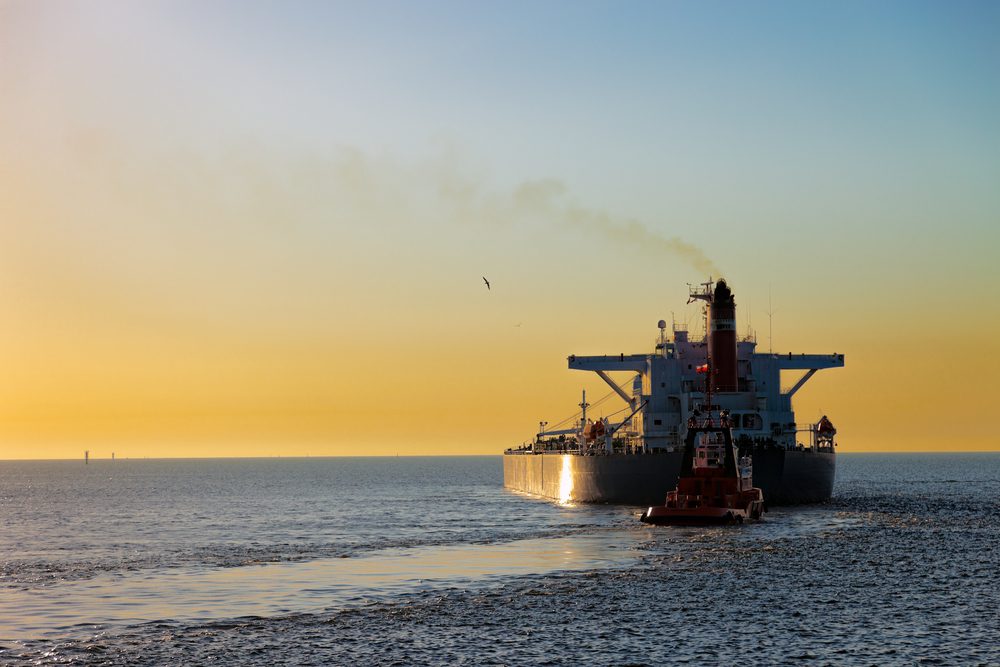Trump Trade Wars: A Look At Winners And Losers Since 2016
by Tom Orlik (Bloomberg) Who Loses in Trump’s Endless Trade War? In 2016, Donald Trump campaigned for the US presidency on a promise to beat China. Once in office, he unleashed a...

Shutterstock/Nightman1965
By Isaac Arnsdorf
(Bloomberg) — At a New York shipping conference late last year, Mark Friedman, a senior managing director at Evercore Partners Inc., regaled attendees with an analogy to the Eagles’ “Hotel California.”
Investors, as his reference to the song went, can get into the industry but can never leave.
WL Ross & Co., Oaktree Capital Group LLC and other private- equity firms bought vessels at near record-low prices since 2010, planning to ride the global recovery. Instead, they found that what goes down sometimes stays down. And now, stuck running fleets that few others want to buy, they’re left to contend with declining freight rates.
“Funds went in with a lot of excitement but the markets haven’t played out like they expected,” Paul Leand, chief executive officer of AMA Capital Partners LLC, a fund manager and adviser in New York, said by phone March 30. “Now, they’re ship owners.”
Private-equity investments in shipping plunged 55 percent last year from a record $7.5 billion in 2013, and there have been no new deals reported in 2015, according to Marine Money, an industry newsletter.
$2 Billion
Oaktree invested more than $2 billion in tankers, bulkers and container ships through debt and equity since 2010, according to data compiled by Marine Money. Oaktree, based in Los Angeles and managing $90.8 billion, declined to comment via Alyssa Linn, an external spokeswoman at Sard Verbinnen & Co.
“They realize they’re not going to make those returns in the time frame they’re used to,” Harry Theochari, the global head of transport for law firm Norton Rose Fulbright in London, said generally of private-equity investors in shipping. “You may find private-equity guys dumping and moving on if they see any kind of upturn.”
Billionaire Wilbur Ross scrapped a public offering for Diamond S Shipping Group Inc., the tanker company in which his firm is the largest shareholder, last year because he said the price was too low. Nordcap Offshore Inc. canceled its share sale in Oslo in June, citing insufficient demand. Euronav NV pulled its U.S. IPO in October, and a month later Exmar NV postponed the spinoff of a master limited partnership.
Prices Drop
A gasoline tanker fetches $26.4 million, a drop of 7.3 percent in the past year and 51 percent from the peak in 2008, according to the Baltic Exchange in London.
“Since we did not need the money we declined to take the dilution” of ownership, Ross, whose company manages $7 billion, wrote in a March 31 e-mail. “We believe our entry prices are low and that we are now in an upturn so we are comfortable with our investment.”
Supertankers got a boost as the 47 percent collapse in oil prices since June stimulated demand, with rates rebounding to an almost four-year high at the end of 2014. Still, daily rates for the ships, also known as very large crude carriers, are now just $34,476, compared with $148,000 in 2008.
Rates to hire carriers of liquefied natural gas, once a bright spot in the slumping industry, are now the lowest since 2010 as new vessels joined the fleet before facilities to export the fuel were finished, according to data from Poten & Partners Inc., a New York-based shipbroker. The Baltic Dry Index, a measure of costs to ship iron ore, coal and grains, reached a record low in February.
Bigger Companies
With shipping IPOs struggling, Evercore’s Friedman, who has advised shipping companies including Overseas Shipholding Group Inc., Golar LNG Ltd. and Torm A/S, forecast that investors could end up combining their fleets into bigger companies. Ross, who made his fortune betting on out-of-favor industries, has also predicted that private equity’s increased role in shipping would lead to consolidation.
“In shipping, you make a modest return from operations over a whole cycle if you are in the spot market,” Ross said in the e-mail. “But you make your real money if you have timed the cycle correctly in terms of purchases.”
Freight rates collapsed with the global recession in 2008, leaving behind a glut of vessels. Demand growth for commodities including iron ore and coal trailed some investors’ expectations as China slowed and Europe weakened. Meanwhile, private capital contributed to new orders, anticipating a recovery.
As Friedman, sticking to his Hotel California storyline, put it during his Nov. 12 presentation at the Plaza Hotel, “We are all just prisoners here of our own device.”
–With assistance from Laura J. Keller and Mary Childs in New York.
©2015 Bloomberg News

Sign up for gCaptain’s newsletter and never miss an update

Subscribe to gCaptain Daily and stay informed with the latest global maritime and offshore news


Stay informed with the latest maritime and offshore news, delivered daily straight to your inbox
Essential news coupled with the finest maritime content sourced from across the globe.
Sign Up